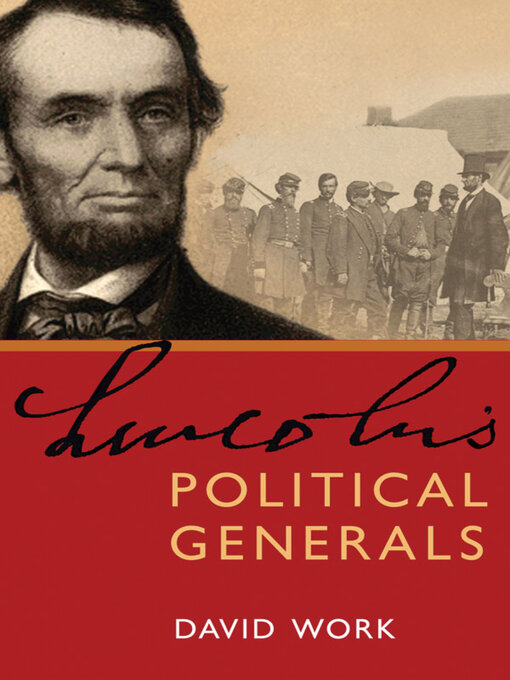As the war proceeded, the value of the political generals became a matter of serious dispute. Could politicians make the shift from a political campaign to a military one? Could they be trusted to fight? Could they avoid destructive jealousies and the temptations of corruption? And with several of the generals being Irish or German immigrants, what effect would ethnic prejudices have on their success or failure?
In this book, David Work examines Lincoln's policy of appointing political generals to build a national coalition to fight and win the Civil War. Work follows the careers of sixteen generals through the war to assess their contributions and to ascertain how Lincoln assessed them as commander-in-chief. Eight of the generals began the war as Republicans and eight as Democrats. Some commanded armies, some regiments. Among them were some of the most famous generals of the Union—such as Francis P. Blair Jr., John A. Dix, John A. Logan, James S. Wadsworth—and others whose importance has been obscured by more dramatic personalities.
Work finds that Lincoln's policy was ultimately successful, as these generals provided effective political support and made important contributions in military administration and on the battlefield. Although several of them proved to be poor commanders, others were effective in exercising influence on military administration and recruitment, slavery policy, and national politics.
|Acknowledgments ix1. The Necessity of the Time 1
2. Hunting for Generals 6
3. The Opening Campaigns 26
4. The Campaigns of 1862 47
5. The Vicksburg Campaign 76
6. Battles in the West and the East 98
7. The Western Theater in 1864-65 121
8. The Eastern Theater in 1864 139
9. Quasi-Civil Support 158
10. Slavery, Freedom, and Black Soldiers 184
11. Exerting Political Influence 202
Conclusion 227
Notes 235
Index 277
Illustrations follow page 138| Winner of the Hay-Nicolay Prize of the Abraham Lincoln Association and the Abraham Lincoln Institute. — Abraham Lincoln Association and the Abraham Lincoln Institute
|
David Work has published articles in Southwestern Historical Quarterly, Journal of Arizona History, Gulf South Historical Review, Vermont History, and Western Historical Quarterly.
